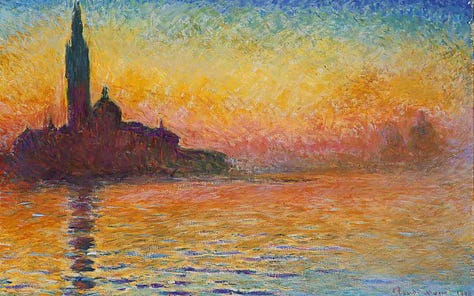The Genius of James Baldwin
Considered perhaps the greatest essayist ever, Baldwin tackled healing racial division
Author/playwright James Baldwin (Aug. 2, 1924 - 1987), born in Harlem, was the oldest of 10 children. He became a Pentecostal preacher at age 14, taking after his stepfather and adopting his last name. Three years later, he left the church and occasionally fought with his father over "sinful" things like his love of reading secular books, going to the movies (a violation of the second Commandment, no images) and having White friends.
His stepfather, who was considerably older than his mother, was born in Louisiana before emancipation to parents who had both been slaves. James Baldwin grew up with this grandmother, who lived with the family during his childhood.
At age 21, Baldwin met the very talented Black author Richard Wright, who had recently published his groundbreaking novel "Native Son." They became good friends. At age 24, he moved to Paris and lived also in Switzerland and Turkey over the years, occasionally returning for stints of time to the US. When he first moved abroad, his entire family pitched in to help support him. Later he bought an apartment building and many of his family members moved into it.
His first novel "Go Tell It On a Mountain" (1953) is semi-autobiographical. In it, the main character is redeemed by homosexual love. It has been banned many times including by school districts in Hudson Falls, New York (1994), Prince William County, Virginia (1988), Lemont, Illinois (2017), Nebraska (2022), and Iowa (2023) for profanity and telling the truth about the abuse of Black Americans.
But far from being banned in 1953 when the book came out, the book was well received even by squeamish book critics who recognized Baldwin's enormous talent and the universal themes the novel wrestles with. This fact demonstrates just how far the US has strayed from the principle of freedom of speech on which it was founded.
"Go Tell It On a Mountain" is considered his best novel. https://www.epl.org/wp-content/uploads/2019/12/Go-Tell-It-on-the-Mountain-Overview-and-Analysis.pdf
Living abroad, it seems, greatly helped Baldwin to gain distance from the problems of race in the US, and be able to write objectively about them.Civil Rights
Baldwin returned home to be a part of the Civil Rights movement. The book "The Fire Next Time" (1963) was the result. Its starting point was the discrimination he faced as a Black man in America. He goes on to explore the roots of racism, FEAR, and how fear lurks within the elements of authority, religion, and love.
He concludes that racism can only be conquered through non-violent pacifism and embracing the fellowship of the entire human family.
Fascinatingly, he examines the negative effects of racism on both Black people AND on White people, who may suffer more persistent psychological harm than victims who can far more easily pin-point the problems and how to fix them. In contrast, some white people may develop many illusions about themselves and others, including self-debasing illusions, such as that they have no worth unless they are monied or in important positions.
No such psychological disorder is thus far listed in the handbook of psychological disorders.
MLK independently reached similar conclusions about healing society.
Although Baldwin was a best-selling author and France awarded him its highest medal of honor, I feel his genius has yet to be fully recognized, along with Martin Luther King's.
The definition of a genius: someone who can aim at a target no one else can see, and successfully hit it.
The great debate with William F. Buckley
After the murder of Baldwin returned to Europe and entered his most prolific writing period.
In 1965, Cambridge University in the UK invited James Baldwin to debate William F. Buckley in person as part of his book tour. The theme of the debate was whether the American dream has been achieved at the expense of Black people. Baldwin was incredibly persuasive and overwhelmingly won the debate; he even got the very first standing ovation ever given at the Debate Club after laying out his argument, before Buckley spoke.
Buckley insults poor White people in the debate, indirectly clarifying that the American dream is achieved on the backs of poor Whites and others as well.
The debate has also been turned into a theater performance called "Baldwin and Buckley at Cambridge," performed at Zellerbach Playhouse as part of the Cal Performances series in Berkeley.
Here is the full debate and a shorter video about it if time is an issue.James Baldwin is currently experiencing a resurgence in popularity at this relevant juncture in history. In addition to being studied once again on college campuses, Baldwin is the subject of plays like “Baldwin et Lucien“ about his long-time relationship with Lucien Happersberger was performed recently at the Harkness Studio on Broadway.“For me, a landscape does not exist in its own right, since its appearance changes at every moment.” -Claude Monet



Colette Maze, 108, plays Debussy
Debussy is a great composer of Impressionistic music. Monet is a great Impressionistic painter. Notice the style similarities?
Perhaps the Best Writing Advice I've Encountered
·
Award-winning filmmaker Kase Peña directed the TV mini-series “Visions of Us,” and two HBO films: “Trabajo” and “Full Beat.”







